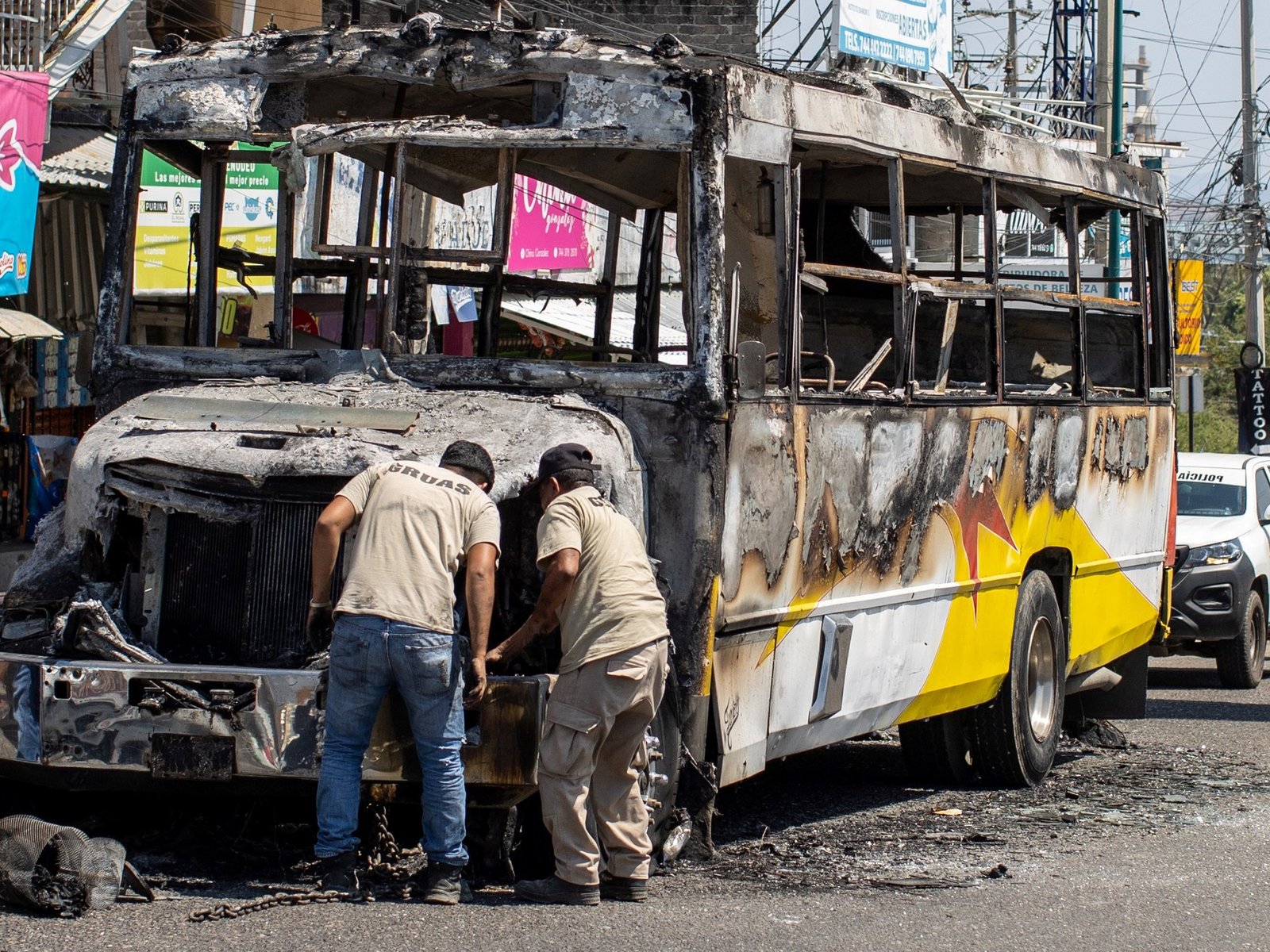INTERNACIONAL
Por qué los estoicos recomendaban exponerse a incomodidades

La filosofía estoica, al igual que las enseñanzas de los cínicos y los espartanos, defendía la práctica de dificultades autoimpuestas como vía para una vida más plena y resiliente. Según Psychology Today, esta antigua corriente de pensamiento consideraba valioso enfrentarse voluntariamente a la adversidad y señalaba beneficios inesperados en este ejercicio, muchos de los cuales resultan aplicables a los desafíos de la vida moderna.
Los estoicos sostenían que someterse a privaciones voluntarias permitía descubrir hasta qué punto los bienes materiales son prescindibles y, en consecuencia, reducir el temor a perderlos. Esta perspectiva se reflejaba en la vida cotidiana de figuras como la del filósofo Séneca y la del emperador Marco Aurelio, quienes recomendaban practicar la pobreza o exponerse a incomodidades leves de manera regular. Psychology Today subraya que, para los estoicos, estas prácticas no requerían gestos extremos, sino que bastaba con adoptar hábitos sencillos que pusieran a prueba la fortaleza personal.
Un ejemplo histórico es el de Diógenes el Cínico, quien, según relata Psychology Today, se despojaba de sus ropas en pleno invierno y abrazaba estatuas de bronce para desafiar el frío. Esto ilustra la importancia que los antiguos griegos y romanos otorgaban a la autoadversidad, aunque la mayoría de los estoicos preferían formas más moderadas que las de Diógenes.
Séneca, en sus cartas a Lucilio, aconsejaba fijar periodos en los que uno se conformara con la comida más sencilla y la ropa más tosca, invitando a preguntarse: “¿Es esto lo que temía?”. Para el filósofo romano, este tipo de ejercicios ayudaba a descubrir de cuántas cosas se podía prescindir y a disminuir el miedo a la pérdida. Además, Séneca recordaba que placeres simples, como el pan con aceite de oliva o una noche de buen descanso, podían ser tan satisfactorios como los lujos más refinados, lo que hacía que el bienestar estuviera al alcance de todos.

Otra razón fundamental para practicar la autoadversidad, según Séneca, era la posibilidad de reflexionar sobre los verdaderos objetivos personales y trabajar para alcanzarlos. En palabras recogidas por Psychology Today, el pensador afirmaba: “Si quieres tener tiempo para tu mente, debes ser pobre o parecerte a los pobres… No se puede estudiar sin moderación, y la moderación es simplemente pobreza voluntaria”.
Más allá de estas motivaciones principales, los estoicos identificaban al menos seis beneficios adicionales derivados de la autoadversidad. Psychology Today los enumera de este modo: el aumento de la valoración y el aprecio por las cosas cotidianas, la ruptura de la rutina y la consiguiente revitalización mental, la preparación del ánimo para futuras dificultades, la convicción de que gran parte del sufrimiento depende de la actitud personal con que se lo enfrente, el fortalecimiento de la autodisciplina y la empatía hacia quienes enfrentan mayores privaciones o hacia personas del pasado.
La autoadversidad también puede aportar ventajas prácticas y mundanas. Psychology Today señala que, al adoptar una vida más austera, era posible perder peso, ahorrar tiempo o dinero, e incluso ganar popularidad al mostrarse cercano a la gente común, aunque no se perteneciera a ese grupo social.
Todos estos motivos, según la tradición estoica, constituían en sí mismos una fuente de orgullo y satisfacción. Marco Aurelio, citado por Psychology Today, recomendaba no lamentar la desgracia, sino alegrarse de ser capaz de soportarla sin que perturbe la paz interior.
En última instancia, la filosofía estoica planteaba que, si ejércitos enteros han soportado privaciones extremas por causas ajenas, resulta razonable que una persona acepte la pobreza voluntaria cuando el propósito es alcanzar la libertad mental y la serenidad ante la adversidad.
INTERNACIONAL
US assets in Middle East positioned for ‘highly kinetic’ war, ex-Pentagon official warns

NEWYou can now listen to Fox News articles!
The U.S. is in position for a «highly kinetic» campaign against Iran after launching one of its largest recent military buildups in the Middle East, a former senior Pentagon official has claimed.
Dana Stroul, now research director at The Washington Institute for Near East Policy, made the assessment Sunday as Washington and Tehran prepare for a second round of indirect nuclear talks in Oman.
«The US military is ready for a sustained, highly kinetic campaign should President Trump order it, and also prepared to defend allies and partners in the Middle East from Iran’s missiles,» Stroul told Fox News Digital.
«The US military can rapidly reposition assets from all over the world and deploy overwhelmingly lethal force in a short period of time to one theater,» she said before highlighting how there is «no ally or enemy capable of what we have seen from the US in this current buildup.»
PRESIDENT TRUMP’S IRAN BUILDUP MIRRORS 2003 IRAQ WAR SCALE AS TENSIONS ESCALATE
The world’s largest warship, U.S. aircraft carrier USS Gerald R. Ford, on its way out of the Oslofjord at Nesodden and Bygdoy, Norway, September 17, 2025. (NTB/Lise Aserud via Reuters)
Describing how the current posture differs from the June 2025 strikes on Iranian-linked nuclear targets, Stroul said the U.S. has expanded its offensive and defensive capabilities.
«Two US aircraft carriers and their accompanying vessels and air wings were stationed in the Middle East last summer during the 12-day war and the US operation Midnight Hammer,» she explained.
«The addition of the Ford is really important, it expands US offensive capabilities if we go to war with Iran,» she said.
While in June 2025, the US carried out limited but highly targeted strikes against Iranian nuclear infrastructure to degrade key facilities without triggering a regional war, now, Stroul said the force posture is broader and more sustained.
The US has also «increased the number of guided-missile destroyers, fighter aircraft, refuelers, and air defense systems» in the region, she explained.
TRUMP SAYS IRAN HAS 15 DAYS TO REACH A DEAL OR FACE ‘UNFORTUNATE’ OUTCOME

An F/A-18F Super Hornet, assigned to Strike Fighter Squadron (VFA) 41, prepares to make an arrested landing on the flight deck of the USS Abraham Lincoln in the Pacific Ocean on Aug. 10, 2024. (U.S. Navy/Mass Communication Specialist Seaman Apprentice Daniel Kimmelman/Reuters)
The deployment of aircraft carriers such as the USS Gerald R. Ford and USS Abraham Lincoln has assumed heightened strategic importance.
The USS Gerald R. Ford was recently tracked transiting the Strait of Gibraltar eastward, while the USS Abraham Lincoln is operating in the Arabian Sea.
«They will both be in the Middle East CENTCOM theater,» Stroul explained before clarifying that there could be «one in the eastern Mediterranean and the other in the Arabian Gulf.»
«There would probably be a combination of reasons for that based on availability, readiness, proximity to the Middle East.
«The Ford was heading home and directed to turn around,» she added.
While the specific destinations of the carriers have not been publicly disclosed for operational security reasons, their presence alone signals escalatory leverage and deterrence.
WITKOFF WARNS IRAN IS ‘A WEEK AWAY’ FROM ‘BOMB-MAKING MATERIAL’ AS TRUMP WEIGHS ACTION

Omani Foreign Minister Sayyid Badr Hamad Al Busaidi, US President Donald Trump’s Special Representative for the Middle East, Steve Witkoff and U.S. negotiator Jared Kushner meet ahead of the US-Iran talks, in Muscat, the capital of Oman, on February 06, 2026. (f Oman, on FebruarOman Foreign Ministry/Anadolu via Getty Images)
The military buildup comes as indirect diplomatic talks between Washington and Tehran continue, with Oman once again serving as a mediator Feb. 26.
Stroul argued that Iran’s leadership is trying to balance brinkmanship with negotiation.
«Iran’s leaders are playing a weak hand by combining saber-rattling about their own capabilities, staging preparations and exercises to signal readiness,» she claimed.
«They are attempting to slow this down by pursuing negotiations. No one should be under any illusions about the reality of US dominance — Iran is completely outmatched in conventional terms,» Stroul said.
BUILT FOR WEEKS OF WAR: INSIDE THE FIREPOWER THE US HAS POSITIONED IN THE MIDDLE EAST

Armed NOPO special police units are on the scene as Iranians take to the streets in the downtown Enghelab (Revolution) Square in Tehran, Iran on June 24, 2025, to celebrate the ceasefire after a 12-day war with Israel. (NEGAR/Middle East Images/AFP via Getty Images)
«Israel dominated Iranian airspace in one day last year, targeted many of Iran’s security leaders, took out half of its missile arsenal, and the US significantly set back its nuclear program,» Stroul said.
Iran’s long-cultivated network of proxies across the region — including Hezbollah, Shiite militias in Iraq, and elements in Syria — has also been weakened after sustained Israeli military pressure.
«Iran’s long-cultivated network of proxies across the region is degraded after more than two years of Israeli operations, and they declined to enter the war and support Iran’s defense last summer,» Stroul explained.
CLICK HERE TO DOWNLOAD THE FOX NEWS APP
«No matter what Iran’s leaders say, Iran is not able to rebuild a decades-long project in a few months.»
«That said, the US military is in a position to execute whatever orders President Trump gives,» she said. «It is not a question of military readiness, but a political decision.»
iran,middle east,wars,donald trump,ali khamenei,pentagon defense,pentagon,us navy,military
INTERNACIONAL
¿Cuál es el argumento para creer en Dios?

La larga y sinuosa ruta de Christopher Beha desde un ateísmo bien fundamentado hasta una fe cristiana aún más cultivada comienza con una imagen poderosa: un ángel se le aparece. No es Clarence, el atolondrado amigo de Jimmy Stewart en ¡Qué bello es vivir!, sino una aparición exigente y persistente.
En su profunda reflexión sobre la fe y la filosofía, Why I Am Not an Atheist (Por qué no soy ateo), explica que el espíritu le dijo que confiara en Dios. “Esto no fue un sueño”, escribe sobre la primera visita, ocurrida a mediados de los años noventa, cuando tenía 15 años. “Estaba despierto —tan seguro de eso como de que ahora estoy despierto mientras escribo estas palabras— y una presencia aterradora se comunicaba conmigo”.
Las visitas continuaron durante años. Beha creció en una familia católica y amante de los libros en el Upper East Side de Nueva York, que lo envió a Princeton. Fue editor de Harper’s Magazine y es autor de cuatro libros anteriores, cuyos temas abarcan desde novelas sobre complicaciones emocionales hasta un repaso por los clásicos, mostrando así su versatilidad literaria.

Unos años después de que el imperioso querubín le indicara que debía acercarse a Dios, Beha comprendió que todo podía explicarse desde la ciencia. Había experimentado parálisis del sueño, un estado en el que permanecía despierto pero inmovilizado, acompañado de alucinaciones.
“Había sufrido un padecimiento físico bastante común y, en vez de buscar una causa racional, me refugié en la superstición”, escribe. “En realidad me había convencido de que Dios me enviaba un mensaje”.
Como alguien que también presenció algo inexplicable (una santa fallecida que abrió los ojos en una cripta en Italia), me resultaba más atractivo el Beha adolescente, colmado de asombro religioso. Pero al final del libro, regresa al ángel con una visión ampliada. Fue a la vez un milagro y algo real. “Sé lo que ‘causó’ esas visitas, desde un punto de vista material, pero también sé lo que provocaron después: un viaje de toda la vida en el que todavía sigo”.
Entre esos extremos se despliegan varios cientos de páginas que componen ese trayecto, casi todas centradas en los filósofos mayoritariamente ateos del canon occidental. No es una peregrinación tradicional, sino una odisea intelectual. Beha debate con los grandes maestros: Descartes, Kant, Locke, Mill, Hobbes, Camus, Nietzsche y muchos más, pero empieza cuestionando a los “nuevos ateos” como Sam Harris, Richard Dawkins, Christopher Hitchens y similares, a quienes considera ya superados.

Hace algunos años, el periodista Michael Kinsley describió el libro de Hitchens God Is Not Great con una frase memorable: “Hitchens es un ateo de aldea a la antigua, parado en la plaza tratando de discutir con los buenos ciudadanos que van camino a la iglesia”.
Beha no es de los que lanzan piedras ni busca peleas. Tiene una devoción casi obsesiva por las grandes mentes. Es el tipo de persona que habrías querido como compañero de habitación antes de la era de la inteligencia artificial. O tal vez no. Ha leído todo y hasta escribió una memoria al respecto, The Whole Five Feet, en la que narra el año que dedicó a leer los 51 volúmenes de los Harvard Classics. Solo mirar esa lista agota a la mayoría.
Él escaló esa montaña para que otros no tuvieran que hacerlo. Pero, a veces, en su nuevo libro se pierde en las nubes. Un ejemplo, al tratar a Immanuel Kant, el filósofo alemán: “Kant aquí invoca dos binarios que ya hemos discutido. El primero es el que existe entre la verdad a priori y a posteriori; el segundo, entre análisis y síntesis”.
Beha es sincero, honesto y resulta agradable en la página. Su historia personal resulta más interesante que la intelectual. Empezó a dudar de su fe a los 18 años, tras casi perder a su hermano gemelo en un accidente de auto. Sufrió depresión y un cáncer que puso su vida en riesgo, abusó del alcohol y las drogas. Fue ateo durante mucho tiempo.

El libro es una larga réplica a “Why I Am Not a Christian”, el célebre ensayo del polímata británico Bertrand Russell, quien calificaba la creencia en Dios como “una concepción indigna de hombres libres”. Russell fue una de las figuras que empujaron a Beha a años de escepticismo comprometido.
No le resultaba suficiente el agnosticismo tibio de los espiritualmente errantes, una condición que el comediante católico Stephen Colbert comparó alguna vez con ser “un ateo sin agallas”. Beha se entregó por completo.
El argumento de Russell es conciso, refuta cada una de las razones principales a favor de la fe. El de Beha no lo es. Descompone la visión atea en dos categorías y dedica la mayor parte del libro a detallarlas e incluso simpatizar con ellas. Una es el “materialismo científico”, que sostiene que solo existe el mundo material. La otra es el “idealismo romántico”, que él define como la creación de la propia realidad.
Durante sus largos años en el desierto de la incredulidad, Beha intentó encajar en alguna de esas narrativas, buscando “hacer significativa una vida sin Dios”.

Al final, el ateísmo le resultó insuficiente, igual que a algunos revolucionarios franceses que transformaron brevemente la catedral de Notre-Dame en el árido Templo de la Razón. La religión de la no-religión puede parecerse a la cerveza sin alcohol: ¿para qué?
Beha no pretende convencer a quienes ya han renunciado a Dios. Solo quiere explicar qué lo llevó a regresar a la fe de sus padres, “escuchando la voz susurrante en el alma”. No hay una conversión fulminante, ninguna luz cegadora. Más bien, su vida, a menudo miserable, mejora con la mujer adecuada, una confesión católica, la asistencia regular a misa. Y esa mujer —“ella era la razón por la que creía en Dios”— ni siquiera es creyente. Es episcopaliana no practicante.
Si Beha no logra necesariamente ganar su debate con Russell, al menos hay que reconocerle que cumple la exigencia de los seres conscientes: reflexionar a fondo sobre el misterio de lo que somos en un universo incognoscible.
“No creo que alguna vez vea las cosas con claridad; no en esta vida mortal”, concluye. “Lo mejor que podemos esperar es estar mirando en la dirección correcta, orientados del modo adecuado”.
Fuente: The New York Times
INTERNACIONAL
Narcotráfico en México: seis carteles poderosos y 480.000 asesinatos en 20 años

1.- Cartel de Sinaloa:
2.- Cartel Jalisco Nueva Generación:
3.- Cartel del Golfo:
4.- Cartel del Noroeste:
5.- La Nueva Familia Michoacana:
6.- Carteles Unidos:

 ECONOMIA2 días ago
ECONOMIA2 días agoVillarruel cuestionó la apertura de importaciones: «Sin industria, se pasa a depender de China»

 POLITICA1 día ago
POLITICA1 día ago“Ahora es la hora de jugarse”: el mensaje de Patricia Bullrich a los empresarios tras aprobarse la reforma laboral

 ECONOMIA1 día ago
ECONOMIA1 día agoSegún un especialista, el precio de la carne se mantendrá alto “entre dos y tres años”
















